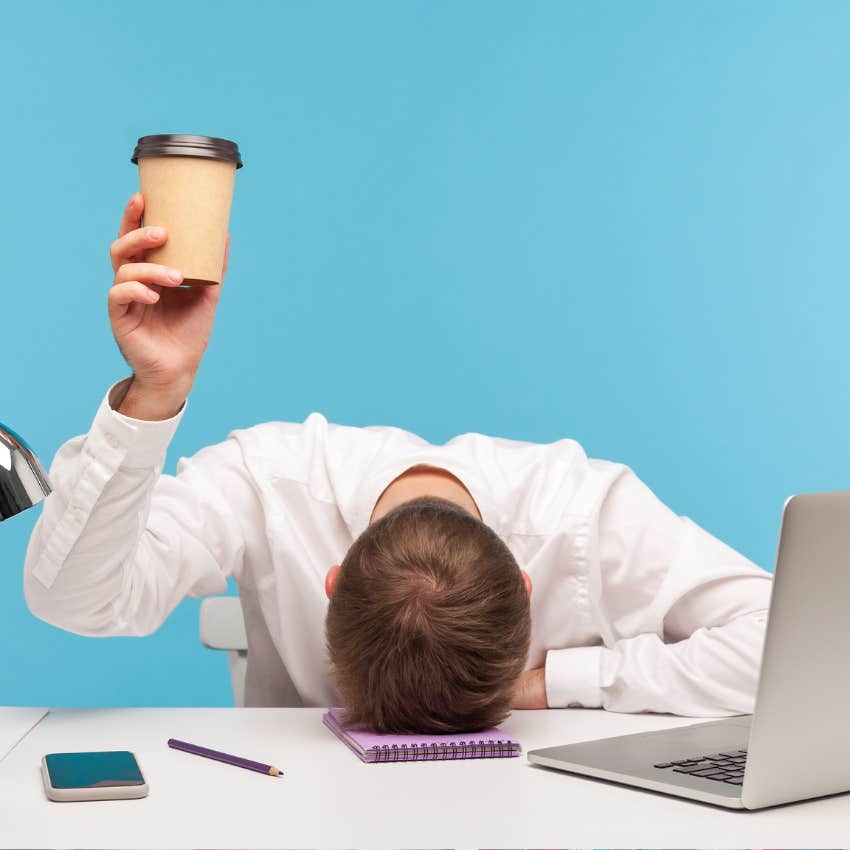Study Confirms Coffee Is Actually Good For You — But Only If You Drink It At This Time Of Day
Quitting coffee is no longer the health flex it once was — unless you're an all-day drinker, that is.
 progressman | Canva Pro
progressman | Canva Pro If you're anything like me, you regularly wonder how anybody even got through life before the advent of coffee. Seriously, the day someone actually says coffee is good for you will be a time for rejoicing.
Well good news, coffee lovers. That's exactly what a study released earlier this year determined. Researchers found coffee actually has health and longevity benefits. But there's a catch that easily turns your java habit from a good one to a bad one.
The study found coffee is actually good for you, but only if you drink it in the morning.
The massive study, released this past January, was conducted by Tulane University and the U.S. National Heart, Lung, and Blood Institute. It not only followed 40,725 regular coffee drinkers, but it monitored their habits and health markers for just shy of a decade. So the data is voluminous.
And it showed the thing us coffee addicts have been waiting all our lives for: Our habit is actually helping our health and making us live longer.
Regular coffee drinkers were not only found to be less likely to die of cardiovascular health issues, but also less likely to die overall, period, end of story. So take that, all you "I quit caffeine and now I drink mushroom 'coffee'" people!
However, WHEN you drink your coffee is the linchpin, so much so that having an afternoon or evening — or all day long — coffee habit not only erodes the health benefits but can erase them entirely, especially if you're the type who drinks coffee all-day, every day.
Morning coffee drinkers had significantly lower mortality rates.
In addition to its own participants, the study included many subjects who'd responded to the U.S. National Health and Nutrition Examination Survey between 1999 and 2018. Between the two groups, the average time subjects were observed was 9.8 years.
In that time, researchers recorded 4,295 deaths overall, 1,268 from cardiovascular disease and 934 related to cancer. And when it came to subjects' coffee habits, a clear pattern emerged. Those who drank coffee only in the morning were 16% less likely to die of cardiovascular disease and 31% less like to die overall.
 Gpoint Studio | Canva Pro
Gpoint Studio | Canva Pro
Those who didn't drink coffee at all, which accounted for half of the study subjects, didn't fit into either category. It was basically a toss up. These results remained steady even when accounting for other potentially impactful lifestyle factors, and the amount of coffee didn't matter either. Whether it was one cup or several, it was all about the time of day.
The study's findings are in line with many others which have shown, as study author Dr. Lu Qui pointed out, that drinking coffee not only doesn't raise the risk of cardiovascular disease but may even be protective against conditions like Type II diabetes. But the question of course remains: Why does time of day seem to be so all-important?
Scientists think coffee may disrupt circadian rhythms and hormones when consumed later in the day.
This whole coffee thing, like so many other life factors, may ultimately come down to circadian rhythms and the hormones involved in them. Basically, the bodies circadian rhythm creates an intricate timing system that governs everything from our sleep-wake cycles and appetites to our energy levels and libidos.
Dr. Qi theorized that when drunk later in the day, coffee's caffeine content disrupts these delicate rhythms and levels of key hormones like melatonin that regulate our sleep.
Low melatonin levels, and disruption of the sleep-wake cycle in general, have been linked to all kinds of problems, including higher oxidative stress, high blood pressure, and inflammatory response, all of which are major risk factors for cardiovascular disease.
 Khosro | Canva Pro
Khosro | Canva Pro
And speaking of inflammation, that body process follows circadian rhythms too, and it's naturally higher in the morning and declines over the course of the day. Coffee has long been known to have anti-inflammatory effects, so drinking it in the morning may give the body's natural defenses against inflammation a boost at the very time they're at their lowest.
Whatever the case, Dr. Qi said the study may have a widespread impact on the field of dietary science. “This is the first study testing coffee drinking timing patterns and health outcomes,” he said. "We don’t typically give advice about timing in our dietary guidance, but perhaps we should be thinking about this in the future.”
John Sundholm is a writer, editor, and video personality with 20 years of experience in media and entertainment. He covers culture, mental health, and human interest topics.

